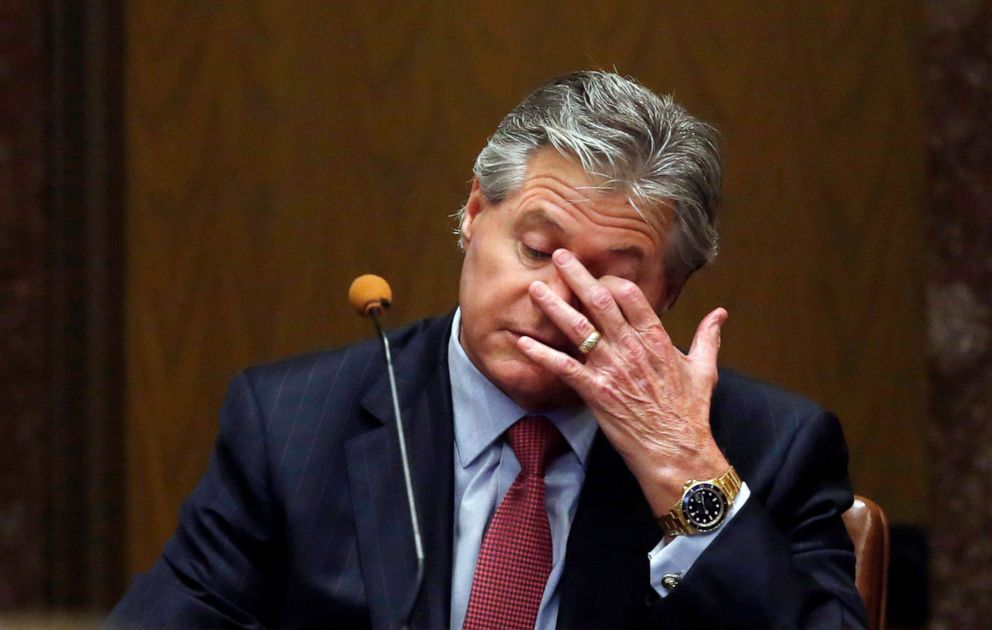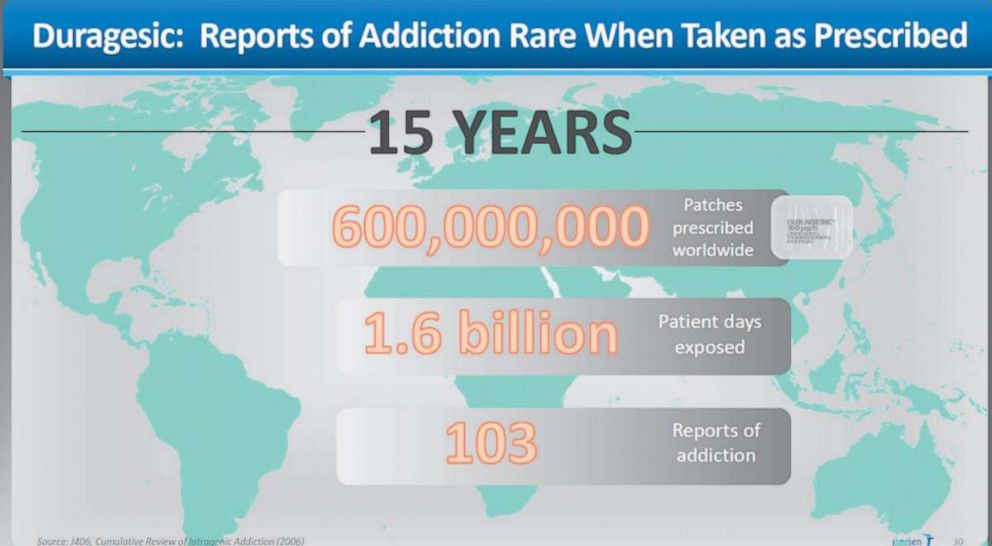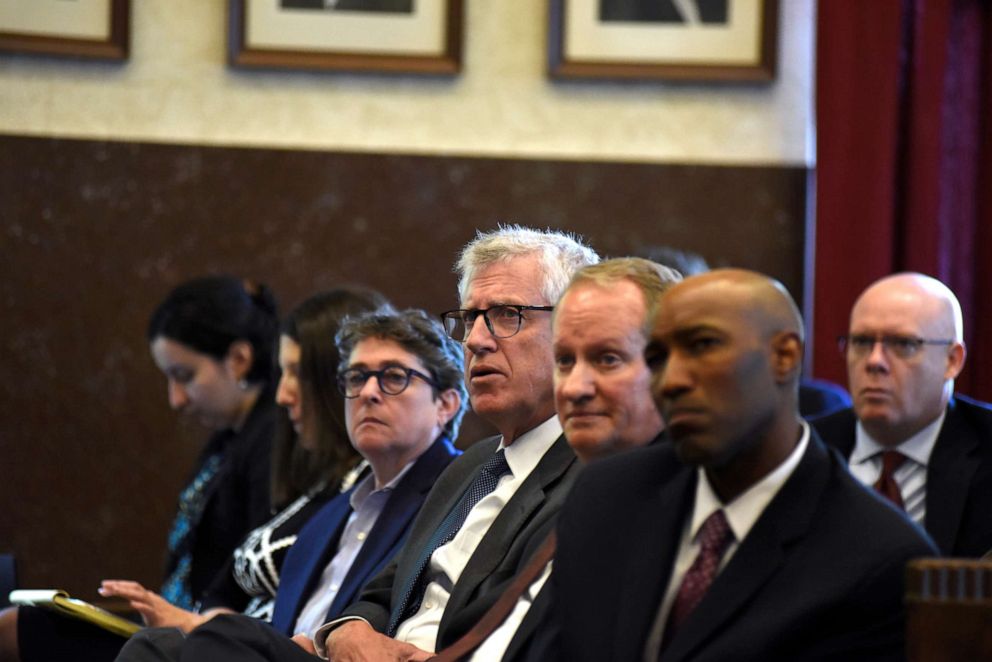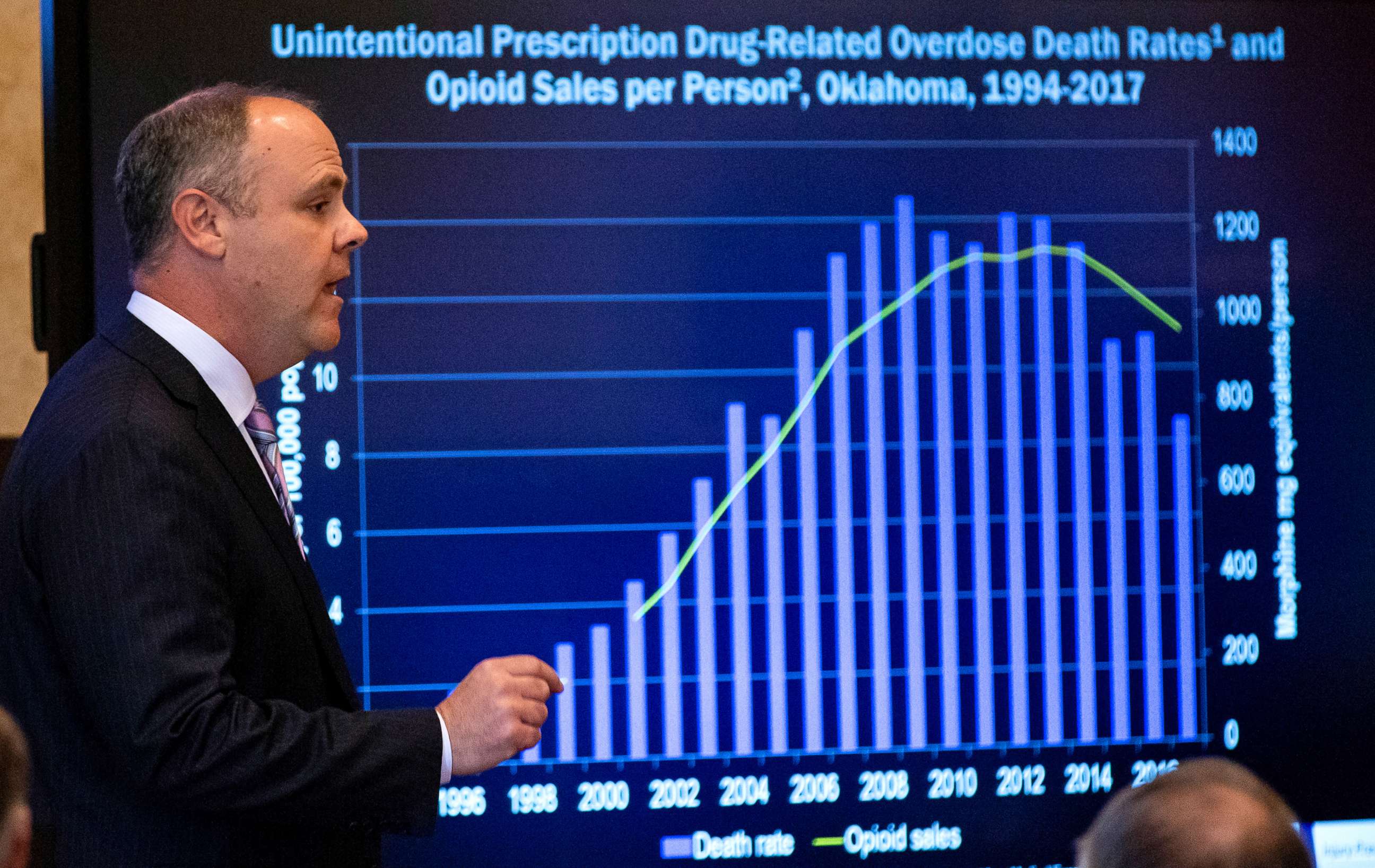Father of college athlete who fatally overdosed testifies in historic opioid trial
It's the second day of a trial for opioid maker Johnson & Johnson.
The restrained tears of a father whose college athlete son suffered a fatal opioid overdose marked the second day of a historic trial against opioid manufacturers.
Craig Box, father to the former University of Oklahoma linebacker Austin Box, said his family had no idea the football player was abusing painkillers until he died in 2011 with five different opiates in his system.
"We heard from so many parents across the [country] that lost children in similar circumstances, that had the same story as us, that had no idea, had no clue," he said.

"I can't explain what happens to you as a parent when a child dies," Box, an Oklahoma lawyer, testified.
Box was the first witness to take the stand for the state of Oklahoma, which is suing America's largest drugmaker, Johnson & Johnson, for its alleged role in the nationwide opioid crisis. The other two defendants, Purdue Pharma and Teva Pharmaceuticals, settled before the trial started for $270 million and $85 million, respectively.
On Monday, Brad Beckworth, a lawyer for Oklahoma, argued that the pharmaceutical giant tried to increase sales of its fentanyl patch Duragesic and extended-release tablet Nucynta. Johnson & Johnson also supplied poppies as raw materials for other opioid makers through two subsidiaries that the company sold off in 2016.

“If you oversupply, people will die,” Beckworth repeated throughout his opening statements on Tuesday.
Box's son did not have any of the Johnson & Johnson opioids in his system when he died.
“Facts are stubborn things.” said Larry Ottaway, counsel for Johnson & Johnson and its subsidiary Janssen, in his statements on Tuesday. “Total documented number of addictions or death due to an Oklahoma doctor acting on an alleged Janssen misrepresentation, and prescribing a Janssen medication that we have been presented with in this case? Zero.”
“We only have certain data from the state. One of the things we have, though, is the Oklahoma Medicaid opioid prescriptions. And Janssen's Duragesic and Nucynta prescriptions make up less than 1% of those prescriptions approved for and paid for by the state.” Ottaway said.

Johnson & Johnson may have a strong position in its arguement, at least one expert.
"I believe that they are correct in assuming that they have a fairly strong case, partly due to the fact that they no longer sell opioids in Oklahoma and never had much of a market share because of the specialized nature of their products," Richard Ausness, a professor at the University of Kentucky law school who has written about opioid litigation, told ABC News.
"Even if Johnson & Johnson loses, I think that the damage award will be modest. From their point of view, even if the trial is costly, Johnson & Johnson, along with the other opioid sellers, will get some valuable information about what to expect in future litigation. If I were in their shoes, I would try the case and see what happens."

The case marks the first time that evidence against opioid companies will be revealed publicly. As a bench trial, the case will be decided by Cleveland County District Judge Thad Balkman, who is allowing cameras in the courtroom. It will not be decided by a jury.
"The opioid epidemic in this country has been marked — and fueled — by secrecy, shame and silence. With the trial beginning in Oklahoma, the curtain is finally being lifted. We'll all have the opportunity to see previously undisclosed evidence as to what sparked and powered this public health catastrophe," Stanford Law School professor Nora Freeman Engstrom said.




